Glasgow drug consumption room could be approved in weeks
- Published
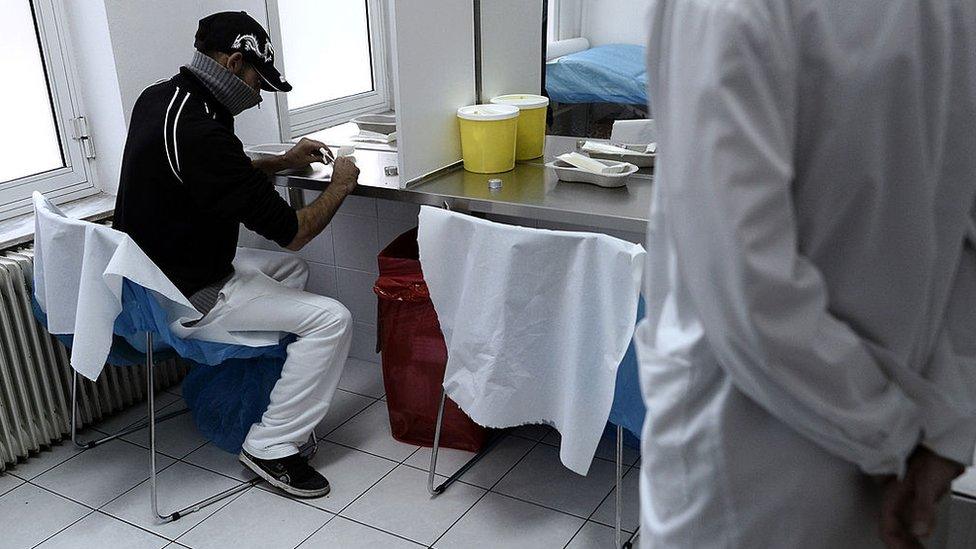
Users can take drugs under supervision at so-called safe consumption rooms
Work to set up a drug consumption room in Glasgow could start within weeks after prosecution guidance was updated.
The country's chief law officer said it would not be in the public interest to prosecute users of such facilities for simple possession offences.
The move could help pave the way for such facilities to be established despite opposition from Westminster.
Drugs Minister Elena Whitham said it was a "significant moment" in the mission to tackle drug deaths.
But police, legal experts and campaigners have warned unanswered questions remain.
It came as new figures showed there were 600 suspected drug deaths during the first six months of 2023, up by 7% on the same period last year.
Ms Whitham has been examining plans for a pilot project developed by Glasgow City Health and Social Care Partnership (HSCP) and Police Scotland, facilitated by the Scottish government.
Those plans could now be presented for approval to the Glasgow City Integration Joint Board - which brings together council and health officials - at its next meeting on 27 September.
Drugs law is reserved to the UK government but Scotland's Lord Advocate sets out the rules on whether prosecutions should take place.
Ms Whitham stressed that the prosecution update did not amount to a change in the law.
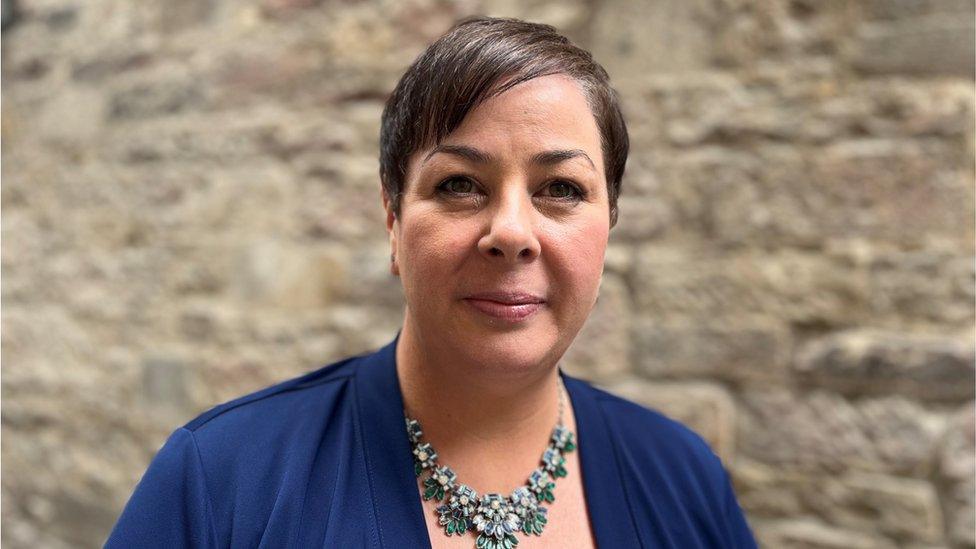
Elena Whitham told BBC Scotland News she would not divert funding away from other services
She told told BBC Radio's Good Morning Scotland programme: "I think we need to be clear that somebody going to and from such a facility is still going to be subjected to all of the laws that everybody else is subjected to.
"What this does do is allow us to help and support those individuals who are at the most risk of drug deaths in Scotland - people who are injecting in dirty alleyways at risk of transmitting HIV and other bloodborne viruses."
She predicted the UK government "probably won't" challenge the move following recommendations from the UK Home Affairs Committee that Westminster consent to a pilot in Scotland.
"I would urge them to work with us on this pilot because it will save lives," the drugs and alcohol policy minister said.
Ms Whitham said she would like to see the facilities rolled out across the country if the pilot is successful, and that she would "absolutely not" cut funding for other drug recovery services to launch the drug recovery room pilot.
Following to a statement to parliament on drugs deaths, the minister said there would be a public consultation before any drug consumption room is set up in Glasgow.
Ms Whitham said she expected the proposed site to be in the city centre because there were known to be between 400 and 500 people who inject drugs in city centre alleyways.
She said further details would be confirmed in the proposal to the Integration Joint Board.
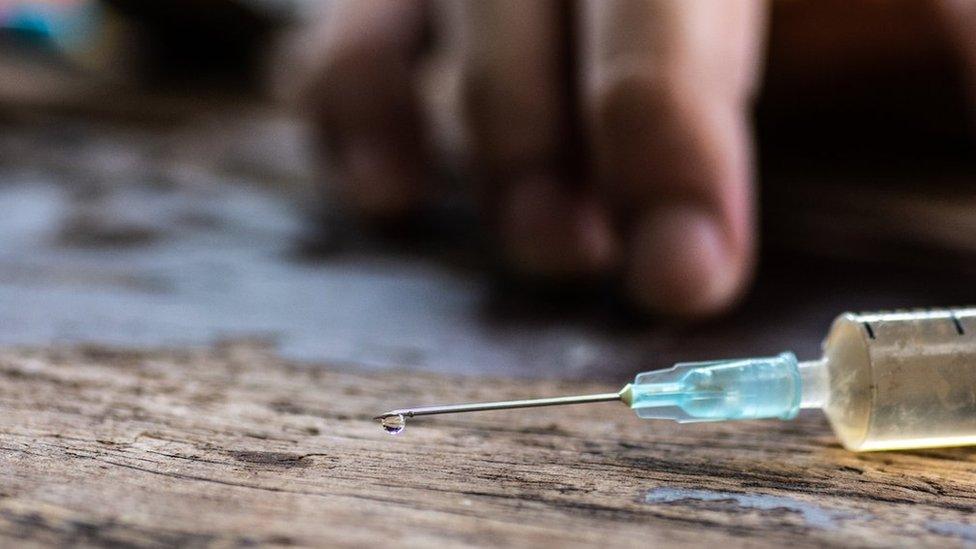
The Lord Advocate has paved the way for safer consumption facilities to be set up in pilot schemes despite opposition from Westminster
Earlier, Scottish Conservatives MSP Miles Briggs told the programme he welcomed the Lord Advocate's intervention on recovery rooms and said he did not expect the UK government to object.
Mr Briggs, who sits on the cross party group for drug and alcohol misuse, said: "This is part of a jigsaw but we need to see far more taking place in Scotland to address this."
David Kennedy, general secretary of the Scottish Police Federation, said officers had not been given any guidance about how they would be able to police the pilot scheme.
"If a police officer doesn't search somebody properly, they then take drugs, they then die from that, then that will be a fatal accident inquiry for police contact," he told BBC Scotland News.
"These are the unanswered questions."
Mr Kennedy added: "There's not enough guidance and the law in theory would have to change for police officers because if it doesn't, the police officers are going to put themselves at risk."
He also raised concerns that the area around a drug consumption facility could become a "hotspot" for drug dealers at a time when the federation says Police Scotland is "overstretched".
"Police officers would then more than likely have to be there and we don't have enough police officers to do the job we have at the moment," Mr Kennedy said.
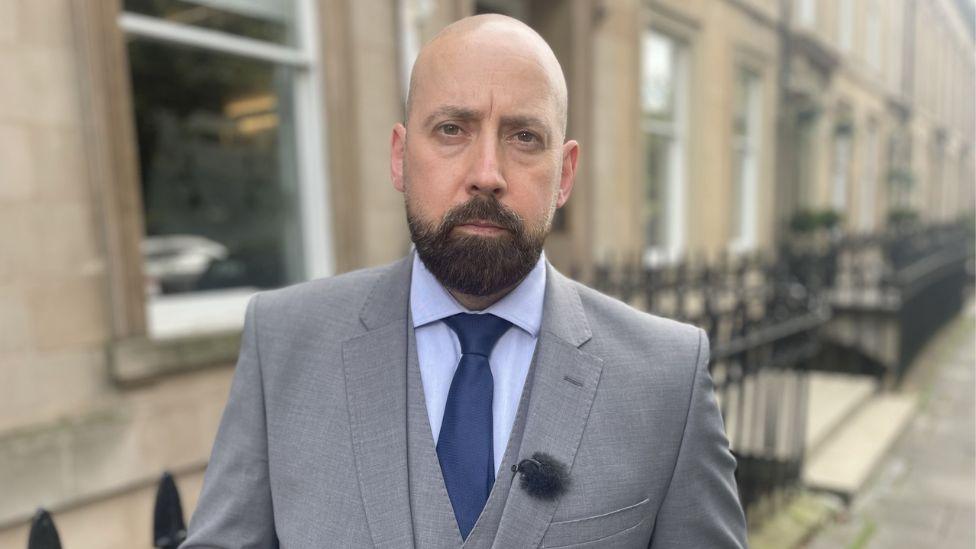
Police federation chief David Kennedy says the pilot scheme could leave officers at risk
The number of people who died due to drug misuse in Scotland last year fell by 279 to the lowest level for five years. However, the country still has the worst drug death rate in the UK and the rest of Europe.
The latest figures suggest a 7% year-on-year increase in deaths in the first six months of 2023, although officials cautioned against reading any long-term trends into the data.
According to studies drug consumption rooms - facilities where people can inject drugs under supervision - can reduce overdose deaths, public injecting and drug-related litter.
The Home Affairs Committee at Westminster recommended that the Misuse of Drugs Act (1971) be amended to allow a pilot project to run in Scotland, but the call was rejected by the Home Office.
On Monday a Home Office spokeswoman said: "There is no safe way to take illegal drugs, which devastate lives, ruin families and damage communities and we have no plans to consider this."

Can the UK government block the pilot?
The UK government has repeatedly rejected calls for consumption rooms in Scotland and has recently blocked legislation passed by the Scottish Parliament on other issues.
But legal experts have told BBC Scotland that it would not be straightforward for Downing Street to prevent a pilot scheme.
James Chalmers, regius professor of law at the University of Glasgow, said since no new law would be required to set up consumption rooms, the UK government could not block the move as it did, for instance, with gender recognition legislation.
He told BBC Radio's Good Morning Scotland it could be challenged in court, but the outcome would be hard to predict as it would be "unchartered territory".
Dr Nick McKerrell, senior law lecturer at Glasgow Caledonian University, told BBC Scotland's Drivetime that three main offences are set out in the UK-wide Misuse of Drugs Act 1971 - possession, supply and administering.
He said the latter offence, which would include injecting someone with heroin, remained a "grey area" under the Lord Advocate's policy.
"The question that arises, which I don't think has been settled yet, is could this set-up avoid that issue of making it easy administering someone to take the drug," Dr McKerrell said.
"If you supply an environment to someone, with a bed, cleaning facilities, etc. Is that helping them administer an illegal drug?"

Annemarie Ward, a former drug users who works with the Families and Voices of Recovery charity, said a drug consumption facility would send the message that people had "given up" on tackling addiction.
"We need to be offering people help to get well and to stop using drugs, not encouraging them to use drugs," she said.
The charity worker called for more investment in rehabilitation services and raised concerns about setting up a consumption room in Glasgow city centre.
"Nobody is going to jump on a bus from Drumchapel, spend £3 to go into the city centre to use a purpose-built facility," she said.
But Kirsten Horsburgh, chief executive of the Scottish Drugs Forum, welcomed the Lord Advocate's statement.
"This facility offers a place of connection, it offers a place of non-judgement, a place of support from staff who are qualified and trained," she said. "Nobody dies from an overdose in these facilities."
The campaigner said the rooms should be set up across the country in areas which are "convenient" for drug users.
First Minister Humza has Yousaf urged the UK government to look at the "really strong evidence base" for piloting a safer drugs consumption facility.
He told BBC Scotland News: "It's not a silver bullet, it's one tool that we can use to help us deal with the drugs death issues that we have here in Scotland."
Related topics
- Published11 September 2023
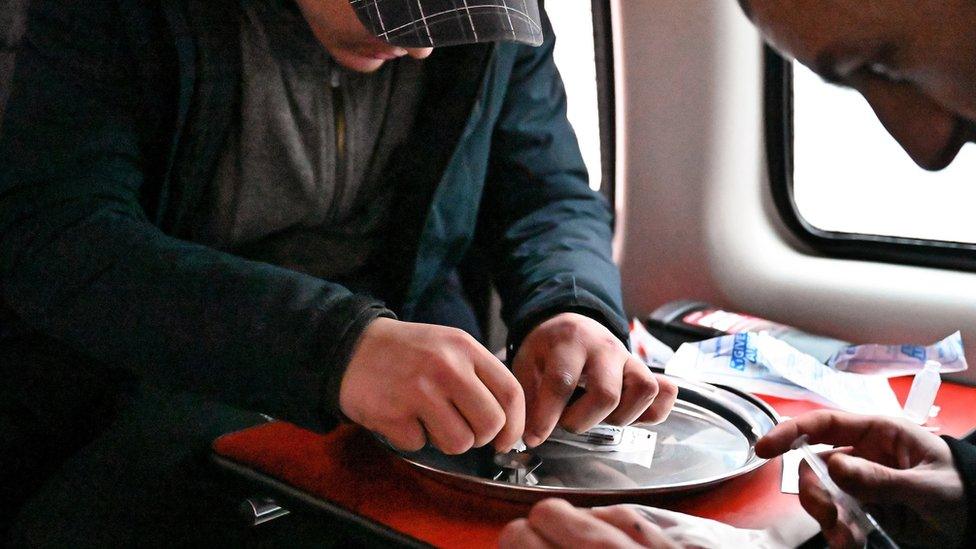
- Published31 August 2023

- Published31 August 2023
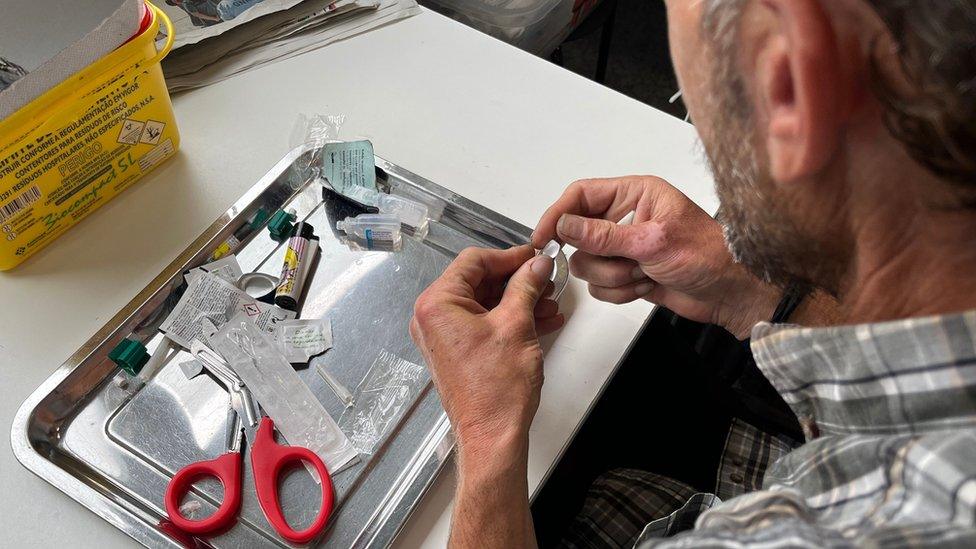
- Published22 August 2023
